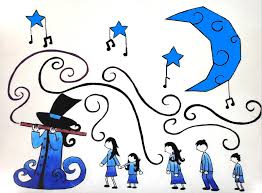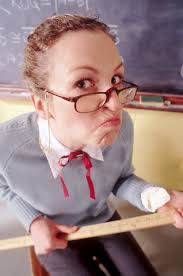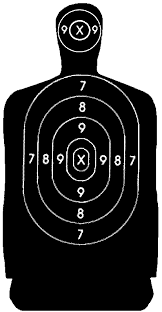Recently one of my students graduated, but it was not an easy road. A month before graduation I noticed the student's grades began to decline significantly, he was chronically late to class, and I found out he had a confrontation with a staff member. Because this behavior was unlike him, I called a conference with his parents. During the conference, we discussed his behavior and what he needed to accomplish to graduate from high school. Everyone seemed to be clear on what he needed to do to graduate from high school--pass all his courses (a no brainer).
Two weeks passed and many of the student's expectations were still unmet. Again, I called his parents in and spoke about the reality of what would happen if he did not pass all his required classes. Naturally being upset, one of the parents said that this could not happen as the student had been through too much and would "do something crazy." I told the family that I understood, but he must complete the mandatory graduation requirements. The parent was unfazed and continued saying that he had been though too much and this wasn't right! Again, I emphasized with their situation, but reiterated the facts...the meeting ended.
A couple of days later I was walking down the hall to my office and another staff member told me the county office called about a complaint they received from a family who was recently informed that their son will not graduate. Immediately, I was to provide all documentation regarding all meetings with the family. Great...here we go. I went to my office and retrieved all my notes and talked to the student's teachers. That afternoon our team assembled to meet with a county official, the student, and his parents. At the start of the meeting, the family was on the defensive and began to share that their good kid had overcome devastating odds to reach graduation. They shared copious stories about his service to the school and his great plans for the future after graduating from high school. One of the parents said it was devastating to just find out about his failing classes and felt the school owed the student for his great service and benevolence. The team sat silent after the comment until one member of the team emphasized that community service could not take the place of course work for graduation. After a look of disbelief from the family, the team established the student's expectations with specific dates. The parents were unhappy, but compliant and the meeting ended. Once the parents left, the team debriefed about how we felt the meeting went. In spite of our surprise over the parents' comments about compensating their son, the team felt confident that we had set clear expectations and kept our boundaries. However, the biggest relief for me personally was our ability to stay out of the Drama Triangle!
Karpman's Triangle of Transactional Analysis or better known as the Drama Triangle is a game of personal and professional manipulation that includes three roles: persecutor, villain, or meanie; savior, rescuer, or genie; and victim, martyr or weenie. Karpman found that when people become entangled in the Drama Triangle, they can assume all three roles. Children learn very early the trap of the Drama Triangle from fairly tales. For example, take the story of Cinderella. The step-mother takes on the role of the meanie, the fairy godmother is the genie, and of course, Cinderella is the weenie.
Another fairy tale that demonstrates the Drama Triangle is the story of the Pied Piper. In the story of Pied Piper, the piper assumed all three roles of the Drama Triangle: genie, weenie, and meanie.
As genie, the Pied Piper saves the town from the evil rodents and then is betrayed by the towns people transforming him into a weenie. To retaliate against the towns people, he becomes the meanie as he leads their children out of the village by his musical pipe.

The Role of Fairy Tales on Psychological Lives
Today, soap operas, comic books, TV dramas, video games, and reality TV all display characters who are involved in the Drama Triangle.
 Since children learn from role models and their environment, they often emulate these behaviors in real life: relationships with friends, classmates, teachers, parents, etc. As children mature, they often carry this type of relationship pattern into marriage, childrearing, work, and friendships if they do not develop appropriate conflict resolution skills.
Since children learn from role models and their environment, they often emulate these behaviors in real life: relationships with friends, classmates, teachers, parents, etc. As children mature, they often carry this type of relationship pattern into marriage, childrearing, work, and friendships if they do not develop appropriate conflict resolution skills.



The Drama Triangle is subtle and steals a person's energy. In deed it is like a soap opera where each character changes roles from villain to hero to savior. In fact, the greater the drama the more the truth becomes irrelevant to the players. In taking sides, everyone forgets to find the core issue. In the drama triangle, no one wins because there is an emotional price everyone pays.

Two weeks passed and many of the student's expectations were still unmet. Again, I called his parents in and spoke about the reality of what would happen if he did not pass all his required classes. Naturally being upset, one of the parents said that this could not happen as the student had been through too much and would "do something crazy." I told the family that I understood, but he must complete the mandatory graduation requirements. The parent was unfazed and continued saying that he had been though too much and this wasn't right! Again, I emphasized with their situation, but reiterated the facts...the meeting ended.
A couple of days later I was walking down the hall to my office and another staff member told me the county office called about a complaint they received from a family who was recently informed that their son will not graduate. Immediately, I was to provide all documentation regarding all meetings with the family. Great...here we go. I went to my office and retrieved all my notes and talked to the student's teachers. That afternoon our team assembled to meet with a county official, the student, and his parents. At the start of the meeting, the family was on the defensive and began to share that their good kid had overcome devastating odds to reach graduation. They shared copious stories about his service to the school and his great plans for the future after graduating from high school. One of the parents said it was devastating to just find out about his failing classes and felt the school owed the student for his great service and benevolence. The team sat silent after the comment until one member of the team emphasized that community service could not take the place of course work for graduation. After a look of disbelief from the family, the team established the student's expectations with specific dates. The parents were unhappy, but compliant and the meeting ended. Once the parents left, the team debriefed about how we felt the meeting went. In spite of our surprise over the parents' comments about compensating their son, the team felt confident that we had set clear expectations and kept our boundaries. However, the biggest relief for me personally was our ability to stay out of the Drama Triangle!
Karpman's Triangle of Transactional Analysis or better known as the Drama Triangle is a game of personal and professional manipulation that includes three roles: persecutor, villain, or meanie; savior, rescuer, or genie; and victim, martyr or weenie. Karpman found that when people become entangled in the Drama Triangle, they can assume all three roles. Children learn very early the trap of the Drama Triangle from fairly tales. For example, take the story of Cinderella. The step-mother takes on the role of the meanie, the fairy godmother is the genie, and of course, Cinderella is the weenie.
Another fairy tale that demonstrates the Drama Triangle is the story of the Pied Piper. In the story of Pied Piper, the piper assumed all three roles of the Drama Triangle: genie, weenie, and meanie.
As genie, the Pied Piper saves the town from the evil rodents and then is betrayed by the towns people transforming him into a weenie. To retaliate against the towns people, he becomes the meanie as he leads their children out of the village by his musical pipe.
The Role of Fairy Tales on Psychological Lives
Today, soap operas, comic books, TV dramas, video games, and reality TV all display characters who are involved in the Drama Triangle.
The Drama Triangle
The Drama Triangle is represented by a triangle with savior and villain in the superior position and the victim represented as the underdog. However, Alain Cordone (2008) postulated that the victim wields unsuspected power. Without the victim, the other two parties would have no reason to meet.

Roles in the Drama Triangle
Savior 
The savior believes that the victim cannot solve his or her issue and needs the savior to take care of the problem. As in my story, the parent believed that the student was too fragile to complete all his course work by graduation because of all his challenges; therefore, the parents called the county office to express concern that the school was persecuting their son. The parent took on the emotional anxiety as it belonged to him/her. In addition, the parents triangulated out to the county office becoming a victim as well.
Villain 
The villain is willing to escalate communication in order to get to the bottom of the issue. The villain may discount the victim as not mattering, but needs someone to pay or be held responsible for the situation. The county office representative was called in to make sure that the school performed its due diligence in making sure the student was informed about his status in a timely manner.
Victim
The victim lacks conflict skills and has trouble communicating in a challenging situation. The victim often acts as if their "neediness" prevents them from solving the problem. Often the victim will flip to villain if the savior does not meet his or her expectations. In our meeting, the student just sat there without taking any responsibility for the failing grades. When asked about his missing work, he floundered and smiled admitting he forgot to turn in his assignments. When one of the parents continued in his defense, he turned to his other parent and made a face as he became embarrassed by their protests.
The Drama Triangle Game
Jan Jacobson
The Drama Triangle is subtle and steals a person's energy. In deed it is like a soap opera where each character changes roles from villain to hero to savior. In fact, the greater the drama the more the truth becomes irrelevant to the players. In taking sides, everyone forgets to find the core issue. In the drama triangle, no one wins because there is an emotional price everyone pays.
Now a word from Captain Jack Sparrow regarding conflict...
Emotional Costs of the Drama Triangle from our Story:
- Cost of isolation or criticism from the group-the parents of my student can be seen by the school as troublemakers.
- Lack of trust-in the future I will be cautious and continue to keep detailed notes.
- Impact on relationships-the relationship between the parents and the school personnel was negatively impacted. The family began to talk about how their child was mistreated by the school.
What is the Role of the School Counselor in the Drama Triangle?
Although I love to avoid these types of situations, it is often impossible to evade some type of triangle as a school counselor. So, it is imperative to avert becoming a player in a drama triangle. To accomplish this goal, a school counselor must always remember that rescuing students is not the same as empowering them. Our role is to help students learn how to communicate appropriately, develop conflict navigation skills, and remain objective when a student is involved in a problem. Instead of participating in the drama, the school counselor takes on a new role, the role of supporter. Although we are often triangulated in by one of the parties, our new role should include:
- allowing venting without taking on the problem.
- not offering advice, but allowing the parties to brainstorm.
- helping the victim to speak for himself or herself.
- showing the victim that conflict is essential for change.
When the school counselor takes on the role of supporter, the victim can become more open to participate in conflict, to problem solve issues, to manage emotions, to avoid shutting down or using explosive emotions, and feels more assertive. In addition, the villain becomes more willing to listen, engage in a discussion, and avoid power plays.
Even though the school counselor may be the only one skilled in this type of awareness, he or she can change the dynamics from drama to discovery of the core issue or problem.

http://www.garyharper.ca/editor_articles/ConflictDrama-VictimVillainHero.htm

http://www.garyharper.ca/editor_articles/ConflictDrama-VictimVillainHero.htm
What Skills are Needed in Order to Shift from the Drama Triangle
- Communication
- Active Listening
- Facilitation Skills
- Perception Taking
- Setting solid boundaries
If you become involved in a drama triangle and all best efforts seem to be not working, here are some additional strategies you can implement:
- Introduce a new player to take on your role (i.e. an administrator).
- Avoid the relationship entirely, if you can (i.e. run the other way).
- Wait to respond to the drama game by using silence to calm the situation.
- Stay positive, professional, and detached from the situation.
- Use humor.
- Pull the players away from an audience to calm the situation.
Involved in drama triangle with students, parents, or co-workers, use these resources to assist you.
Resources:
School Counselor and the Drama Triangle-a large file, but has great information on the school counselor's role in the drama triangle.
Painful to Respectful Communication-handout that explains the Drama Triangle.
A Warm Fuzzy Tale-great story to use about the Drama Triangle.
Blog about the Drama Triangle
Conflict Drama-Victim, Villain, & Hero
Poster-poster reminding us to live our own lives not through the lives of actors on television.
Painful to Respectful Communication-handout that explains the Drama Triangle.
A Warm Fuzzy Tale-great story to use about the Drama Triangle.
Blog about the Drama Triangle
Conflict Drama-Victim, Villain, & Hero
Poster-poster reminding us to live our own lives not through the lives of actors on television.
-




Comments
Post a Comment